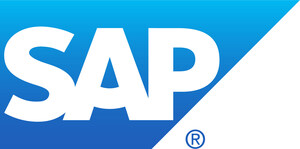WALLDORF, Germany, Aug. 18, 2014 /PRNewswire/ -- It's a jungle out there. Even today's most forward-thinking organizations struggle to remain efficient and profitable amid stiff competition and ever-increasing customer expectations. Today, SAP SE (NYSE: SAP) announced the results of The Service Council's (TSC) "Service Transformation: The Business Case" and "Reviewing Field Service Strategy: Aligning Focus and Execution," two in-depth research studies that deliver a framework for modern organizations to use to redefine customer service and field service strategy.
The statement "customer service is king," is no longer just a marketing tagline, but a mantra that governs how organizations will continue to survive. They are recognizing that customer and field service are ways to create and sustain long-term value. The advantage delivered via differentiated service is much more effective than that delivered via a temporary price cut. As revealed in "Service Transformation: The Business Case":
- Nearly 75 percent of organizations indicated that the importance of service had increased over the previous three years
- 71 percent of non-service business executives have seen an increased importance placed on service over the previous 12 months
- Nearly 60 percent of organizations see that service and support will be the top source of competitive differentiation in three years
Given the vital role that service plays in shaping the overall customer experience and the growing importance that the post-purchase experience plays on future revenue, it is imperative that companies understand the ever-changing expectations of their customers and are equipped with the right solutions and strategies to quickly deliver on them.
Field service has traditionally held the role of facilitating cost containment, productivity enhancement, etc. But according to "Reviewing Field Service Strategy: Aligning Focus and Execution" a shift is underway. Today, field service teams are no longer being viewed as "issue fixers." These teams are viewed as "customer ambassadors" or "solution providers" wherein the relationships that these teams establish with customers offer a means of differentiation and value.
- 38 percent of organizations indicate that if they implement process changes to eliminate basic communication and administrative tasks, they can save up to US$850K per year a first-time fix and ensuring customer satisfaction, which is appropriate, as without resolution and satisfaction, organizations cannot begin to ask for customer commitment and future revenue
- 84 percent believe better diagnosis and triage at the first point of contact is vital to providing
"Although focusing on two different challenges facing today's multi-faceted organizations, both of these reports contain the common theme of highlighting strategies that require both introspection and a realignment of time and resources in the name of organizational improvement," said Sumair Dutta, chief customer officer, TSC. "The resulting rewards — improved customer satisfaction and profitability — prove beneficial to stakeholders both internally and externally."
To read the full reports, see "Today's Most Forward-thinking Organizations Struggle to Remain Profitable."
For more information, visit the SAP News Center. Follow SAP on Twitter at @sapnews.
Media Contacts:
Andrea Meyer, SAP, +1 (415) 370-7329, [email protected], PDT
Britt Gottlieb, PAN Communications, +1 (617) 502-4334, [email protected], EDT
Any statements contained in this document that are not historical facts are forward-looking statements as defined in the U.S. Private Securities Litigation Reform Act of 1995. Words such as "anticipate," "believe," "estimate," "expect," "forecast," "intend," "may," "plan," "project," "predict," "should" and "will" and similar expressions as they relate to SAP are intended to identify such forward-looking statements. SAP undertakes no obligation to publicly update or revise any forward-looking statements. All forward-looking statements are subject to various risks and uncertainties that could cause actual results to differ materially from expectations. The factors that could affect SAP's future financial results are discussed more fully in SAP's filings with the U.S. Securities and Exchange Commission ("SEC"), including SAP's most recent Annual Report on Form 20-F filed with the SEC. Readers are cautioned not to place undue reliance on these forward-looking statements, which speak only as of their dates.
Logo - http://photos.prnewswire.com/prnh/20110126/AQ34470LOGO
SOURCE SAP SE
WANT YOUR COMPANY'S NEWS FEATURED ON PRNEWSWIRE.COM?
Newsrooms &
Influencers
Digital Media
Outlets
Journalists
Opted In




Share this article